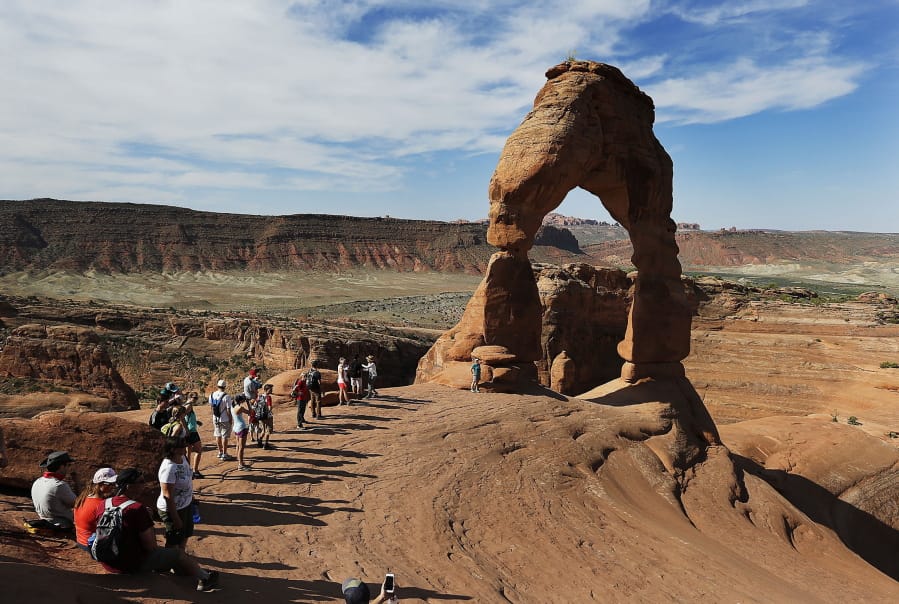SALT LAKE CITY — Three more of America’s most popular national parks have closed their gates as pressure mounts on superintendents to prevent crowded trails that could lead to more spread of the coronavirus even as the Trump administration sticks to its decision to waive entrance fees at the parks.
Glacier in Montana and Arches and Canyonlands in Utah announced their decisions to close Friday night just days after several other well-known parks such as Yellowstone, Grand Teton and the Great Smoky Mountains did the same.
Visitors travel to Arches and Canyonlands to hike red rock trails that lead to picturesque rock arches and canyons located just outside the small tourist town of Moab, Utah — where city leaders and regional health leaders this week sent letters to the National Park Service pleading for the closure of the parks. The health department had already banned local hotels from allowing tourists to stay after seeing continued crowds in town and the parks even as the virus spread across the United States.
In a tweet announcing the closures, Arches and Canyonlands said the decision to close was made in response to local health officials.
Park staff was at risk as visitors kept coming to the parks, including about 700 cars per day last weekend, the Southeast Utah Health Department said in a letter Wednesday to the park service. Moab’s small hospital has only two ventilators — vital for patients with severe cases of COVID-19 — and no intensive care rooms, the letter said.
Glacier National Park Superintendent Jeff Mow said in a statement Friday night the decision was made after listening to concerns from local leaders and was based on current health guidance. The Montana park known for its towering snow capped mountains and valleys near the Canadian border heard from gateway communities in Flathead and Glacier counties, along with the Blackfeet Indian Reservation and the state.
Nearly two weeks ago, Interior Secretary David Bernhardt announced he would waive entrance fees to give people outdoor spaces to recreate, while authorizing park superintendents to make their own decisions about what’s needed to adhere to recommendations form the Centers for Disease Control and Prevention.
“This small step makes it a little easier for the American public to enjoy the outdoors in our incredible National Parks,” Bernhardt said in a news release on March 18.
Many parks that remain open have closed shuttles, campgrounds, visitor centers and some trails to prevent the spread of COVID-19.



